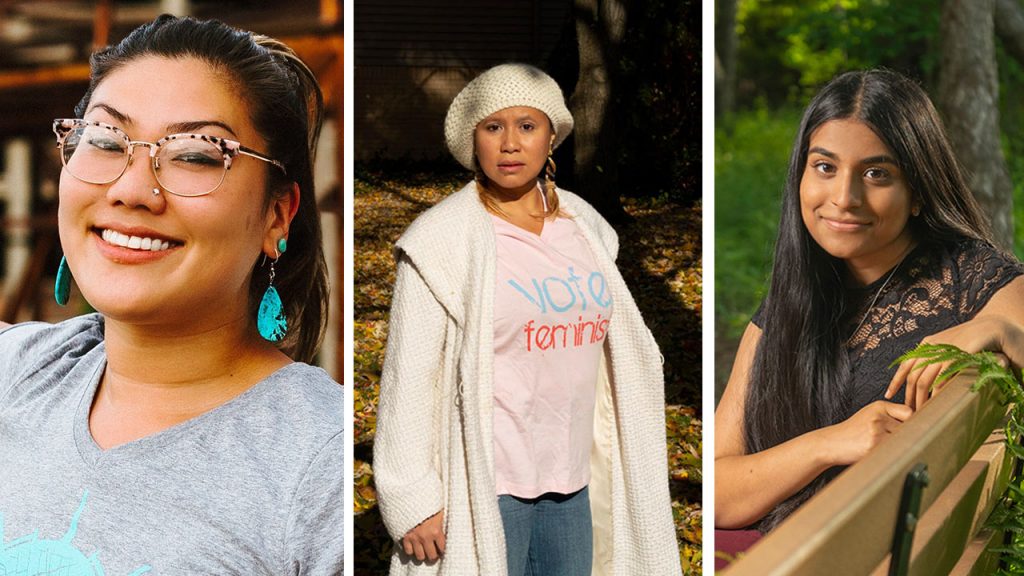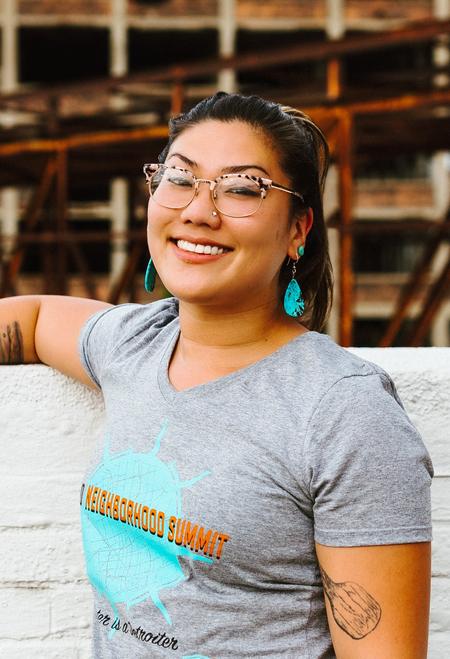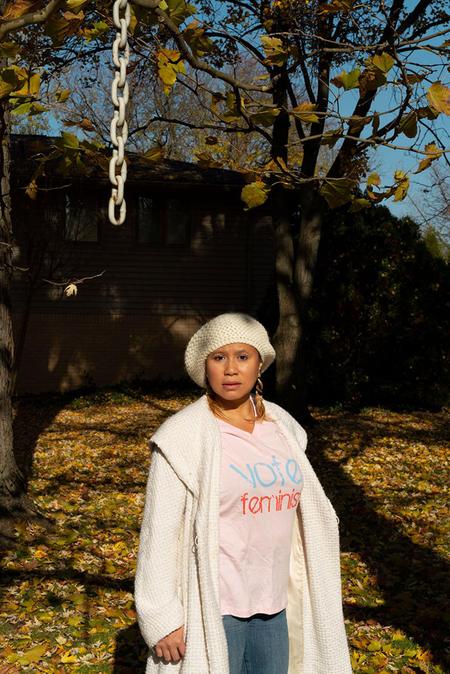Rising Voices Nonprofit Works to Make Sure Asian Americans Are Seen as Political Force in Michigan
During the pandemic, it was even more important for Asian Americans to vote and stand up to anti-Asian rhetoric from the previous administration, says Executive Director Laura Misumi.

“Communities of Hope” features Detroiters from communities of color who have been looking for ways to persevere during the pandemic.
Last year civic engagement organizers scrambled to educate voters during the pandemic. Some groups found ways to shift in-person activities to Zoom or other virtual connections to fulfill their mission.
Rising Voices, a group that organizes Asian American women and families in Michigan, believed it was essential for people to come out and vote in a presidential election year.
Before the pandemic, Rising Voices leaders regularly gathered in person to find out the unique needs of the 180,000 Asian American voters in Michigan. Like many civic engagement organizations, the group was helping people register to vote and to get counted in the Census. Executive Director Laura Misumi says achieving those goals would send an important message.
“We really saw how the pandemic heightened existing inequality in our communities, and we wanted to make sure that folks had equal access to information about what was happening.” –Laura Misumi, Rising Voices
“The election last year was an opportunity for our community to come out and show in force that you were not going to stand for the way that we’ve been treated and vilified, through the Muslim ban, through all of these different other policies enacted under the previous administration,” she says.
Preserving Communities
Asian Americans are often not engaged by voter groups and many assume they will not turn out in numbers. During the pandemic, Misumi says it was even more important for Asian Americans to turn out the vote and stand up to anti-Asian rhetoric from former President Trump, who referred to the coronavirus as “Kung Flu” or the “China virus.”
“Roughly two or three months before lockdown during the pandemic is kind of right when we had started trying to think about doing in-person programming and finally having some staff that we could actually implement some things,” she says.

Initially, Rising Voices’s team recruited bilingual phone bank workers to inform Michigan residents about the Census. As soon as the pandemic hit, that effort pivoted to wellness phone calls.
Misumi says it was important to know the community was OK and had information about the coronavirus in real time, especially since many minority populations are frontline essential workers who work at hospitals, grocery stores and factories.
“And we knew how important it was for us to try to get the word out to our communities, both about what was happening for the Census, but also about what are some wellness things that people can do to help keep themselves safe during this time, because we also knew that there was a delay in the state’s ability to turn out materials about COVID in language,” says Misumi.
Rising Voices sent out mailers that included information from the World Health Organization telling residents how to protect their health, and the importance of preserving communities by filling out the Census.
“We really saw how the pandemic heightened existing inequality in our communities, and we wanted to make sure that folks had equal access to information about what was happening, how to stay safe, how to access testing, and then later vaccines but then also making sure that we’re demanding of our government officials to take into account our communities, in preparing a response,” she says.
The Power of Language

Misumi says 59,000 Asian Americans in Michigan voted absentee in 2020 out of 101,000 self-identified Asian American Pacific Islander or AAPI voters in the general election. That’s up from 8,000 in 2016.
She says Rising Voices aims to make sure Asian Americans are seen as a political force in the state — a diverse group made up of various cultures and languages.
One of those languages is Telegu, a South Asian language.
Shriya Yarlagadda from Grand Blanc started off as a paid phone banker with Rising Voices in June 2020, calling people for 20 hours a week, for four weeks.
“I was hired, partially because of my knowledge of Telugu,” says Yarlagadda.
Yarlagadda had previous experience working on phone banks for U.S. Sen. Debbie Stabenow and Gov. Gretchen Whitmer. She spoke to predominately white voters. She learned about Rising Voices and later applied as a Rising Voices Youth Leadership and Civic Engagement fellow. Yarlagadda says working with the organization during the pandemic allowed her to have genuine conversations before providing voter-related information.

For example, she would call and say, “I’m calling to check in to make sure you are doing OK with the COVID-19 situation. I have a list of phone numbers, and contact information or resources if you need it.’ And then after that we would say, this is the organization that I’m working with. And this is what we do.”
Like Yarlagadda, Kristine Patnugot previously worked on political campaigns prior to coming to Rising Voices. Patnugot is a producer and writer in film and television, who worked on Rising Voices Public Service Announcements. The PSAs were created to address a range of issues. They encouraged Asian Americans to assert their political power in the election to challenge misinformation and to ensure every vote was counted. The messages were produced in 10 languages.
“We had Spanish, Bangla, Tagalog, Cambodian, Cantonese, Mandarin and Arabic,” she says.
Patnugot says the pandemic made many people pay more attention to election information.
“And I think that the ability to use resources such as Zoom and to reach people on the internet is so much more important right now because a lot of us are not engaging in person as much so the power of the internet has been made very clear,” she says.
This year Rising Voices has begun door-to-door canvassing again for next week’s municipal elections. The organization still understands the importance of taking care of each other and the entire community during COVID.
Listen: Rising Voices provides voter education and wellness support during the pandemic.
Trusted, accurate, up-to-date.
WDET strives to make our journalism accessible to everyone. As a public media institution, we maintain our journalistic integrity through independent support from readers like you. If you value WDET as your source of news, music and conversation, please make a gift today.
